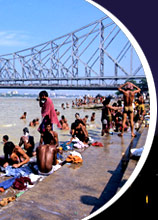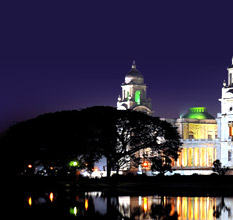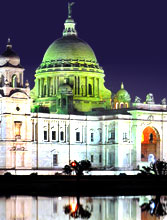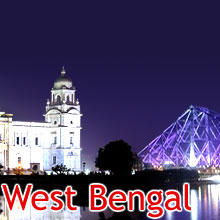 Celebrated In: April
Celebrated In: AprilCelebrated At: Throughout West Bengal
Duration: One day
Charak Puja has its own special place in West Bengal, the state of festivals. It is a special folk festival, celebrated for bidding good-bye to the passing year. It is believed that the celebration leads to prosperity in the coming year, wiping out all the sufferings and pains of the current year. This festival is celebrated on the midnight of Chaitra Sankranti, the last day of Chaitra month in the Bengali calendar, generally falling around April 14-15.
Lord Shiva and Goddess Shakti are worshipped on the day of Charak Pooja, which is also called Nil Puja, Hajrha Puja and Batri Charak. Though the festival is celebrated on the midnight of Chaitra Sankranti, the preparations start at least a month in advance. The team involved in its arrangement goes from village to village and collects the necessary items, like paddy, oil, sugar, salt, honey and money, along with the arranged and cosmetic Shiva, called "Nil Pagol" or "Jal Katha"; Parvati and Narad.
Charak Puja is celebrated with great Úlan amongst the villagers. Around mid-night, the devotees gather to offer prayers to the deity. The rituals of Charak Puja, a way to show the miracle of God, are unique and, at times, a little risky. They involve the making of a human Charak, to please Lord Shiva. The "Charak" is tied with a Borshi, a kind of hook, at the back and is then moved round around a bar, with a long rope. Usually 10-12 members together perform this ritual, with the main performer known as Deoboinshi.
Many devotees observe a fast on the day of Charak Pooja, until the midnight puja takes place. On this day, bamboo stages, of average height between 10 and 15 feet, are erected, with their ground full of knives, glass and thorns. At midnight, when the puja as well as the fasting session is over, all the devotees get on the stage and start moving forward on dangerous ground. It is believed that the devotees don't get hurt on the stage, because the Lord blesses and protects them.








